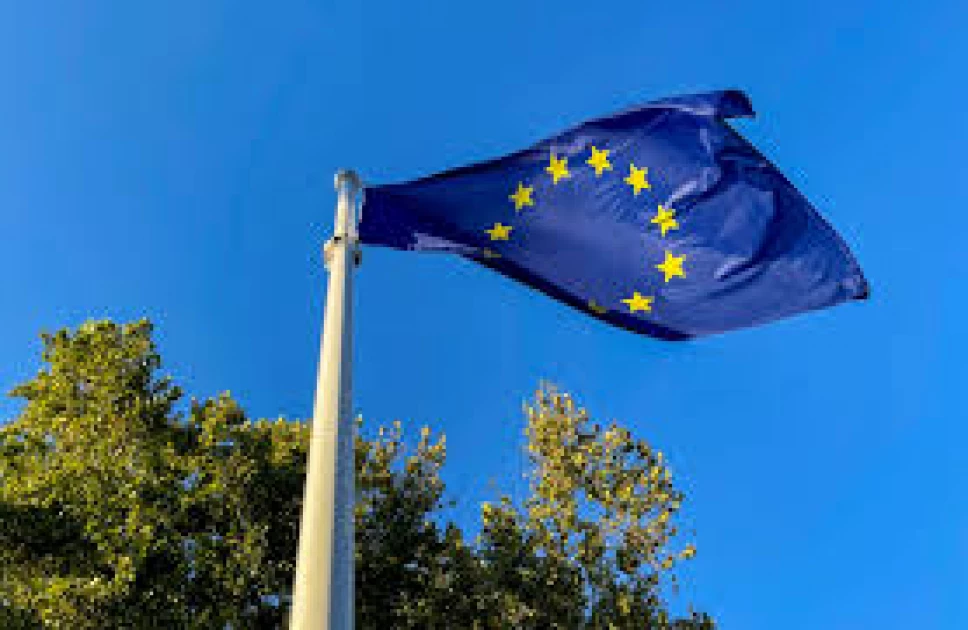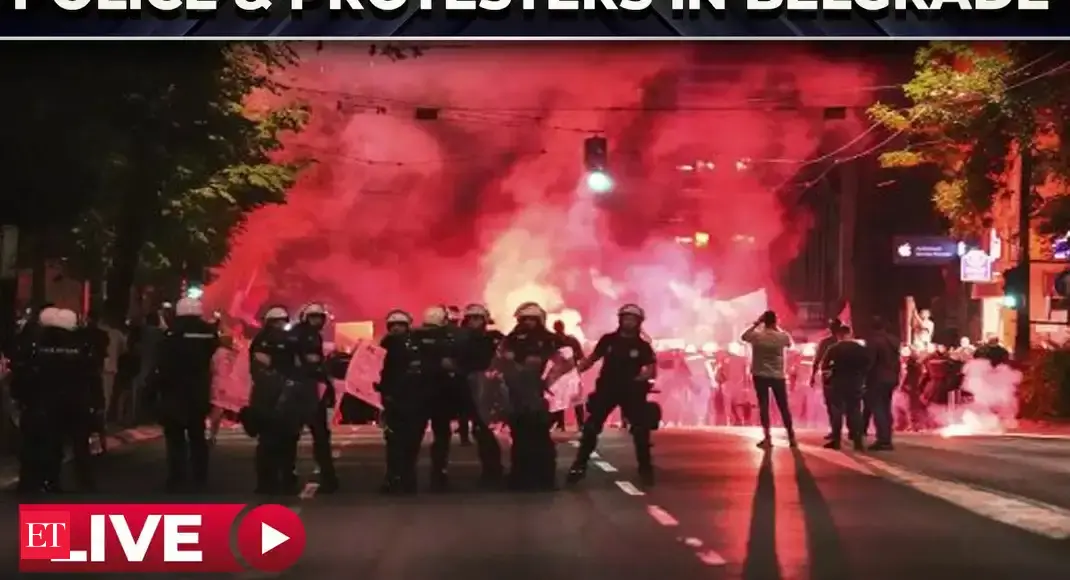Anti-Government Protests and Police Clashes in Serbia

Serbian riot police clashed with tens of thousands of anti-government protesters in Belgrade on Saturday, June 28, 2025. The demonstrators, primarily led by Serbia's university students, demanded snap elections and an end to President Aleksandar Vucic's 12-year rule, signaling a significant escalation after months of persistent demonstrations that have consistently challenged Mr. Vucic's grip on power.
The large crowd, filling the capital's central Slavija Square and surrounding streets, chanted "We want elections!". Student speakers addressed the protesters, with one unnamed student asserting that "Elections are a clear way out of the social crisis caused by the deeds of the government, which is undoubtedly against the interests of their own people." On that day, June 28, 2025, the protesters explicitly declared the current authorities "illegitimate."
Tensions ran high throughout the day. Riot police had been strategically deployed around key government buildings, the parliament, and nearby Pionirski Park, where hundreds of President Vucic's loyalists had been camping for months. As the protest concluded in the evening, confrontations erupted. Some demonstrators hurled bottles, rocks, and flares at police officers who were preventing them from approaching Pionirski Park and confronting Vucic's supporters. Skirmishes between riot officers and groups of protesters persisted for several hours across Belgrade's city center. Police responded by firing tear gas to disperse the crowds and deployed armored vehicles to the streets, with officers seen charging violent groups. Police chief Dragan Vasiljevic reported that several dozen protesters were detained and six officers sustained injuries in the clashes, while two civilians were also injured.
The ongoing nationwide demonstrations, largely spearheaded by university students, were initially sparked last November by the collapse of a renovated rail station canopy in Novi Sad, which tragically killed 16 people. Public outrage quickly mounted, with many blaming the concrete roof crash on government corruption and negligence in state infrastructure projects, leading to recurring protests and demands for accountability.
President Vucic and his right-wing Serbian Progressive Party have repeatedly refused the demand for an early parliamentary vote. Mr. Vucic has publicly warned against protesters resorting to violence and has accused the demonstrations of being instigated by "foreign powers," though he has not specified details. In an Instagram post responding to the violence, President Vucic stated, "Serbia always wins in the end."
Critics describe President Vucic, a former extreme nationalist, as having become increasingly authoritarian since coming to power over a decade ago. While he formally expresses a desire for Serbia to join the European Union, his detractors argue that he has systematically stifled democratic freedoms and strengthened ties with both Russia and China, raising concerns about the country's trajectory.
Despite a recent decrease in the size of some demonstrations, Saturday's large showing suggested a persistent resolve among the populace after nearly eight months of almost daily protests and relentless pressure. Serbian police, tightly controlled by Vucic's government, estimated 36,000 people were present at the start of Saturday's protest, while an independent monitoring group that records public gatherings reported a total attendance of around 140,000 people. Serbia's presidential and parliamentary elections are not officially due until 2027.





